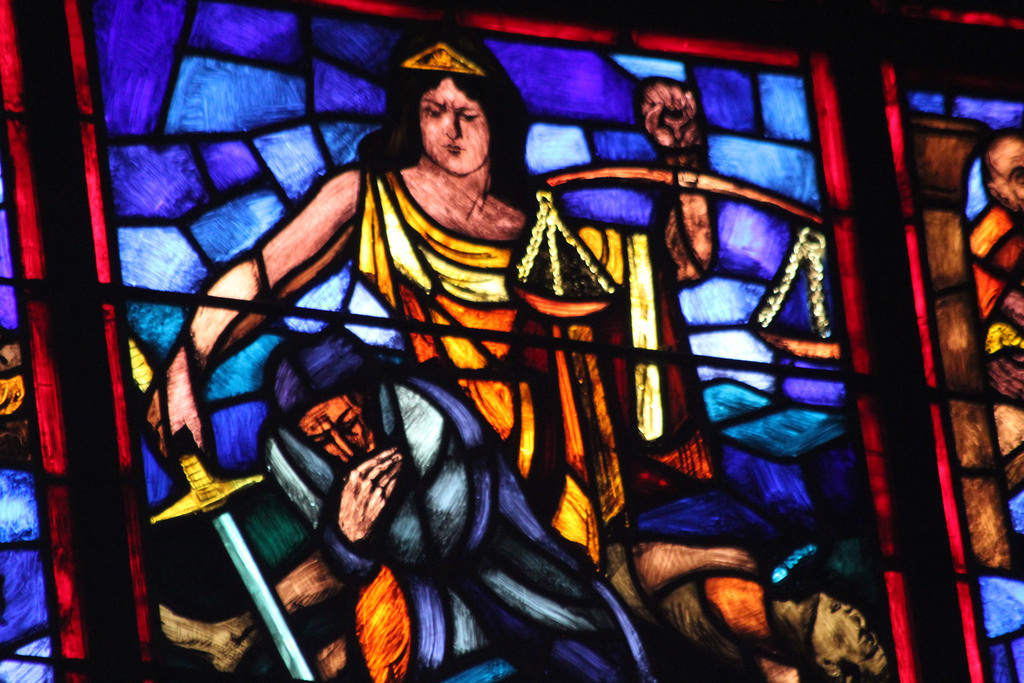“Reforming justice to assist the poor”
October 3rd, 2016 Courts and lawyers are the platforms and providers of justice, writes Sugandha Parmar, 22, a Correspondent in Kanpur, India, but globally, justice for the poor is very different from justice for others.
Courts and lawyers are the platforms and providers of justice, writes Sugandha Parmar, 22, a Correspondent in Kanpur, India, but globally, justice for the poor is very different from justice for others.
Prof. Mohan Gopal, director of the National Judicial Academy, says that anywhere in the world, poor and middle class hardly get justice.
I recently watched Sumit Khanna’s movie “All Rise for Your Honour”. In the film and discussion afterward, I was exposed to several features of the Indian judicial system which were alarming. Most of us would agree that the judicial system is fair in the OECD countries. The apparent reason is the fact that the middle class has a reasonable access to justice. But in these countries, too, access to justice for the the middle class is comparatively less than that of the upper class.
It is also believed that cities have better access to justice because the number of criminal cases filed is higher. Higher literacy rates are a factor. But the reality is the High Court and Supreme Court are accessed only by the educated middle and upper class.
The second reason is the development in the past 20 years of alternative tribunal and justice systems, which are again dominated by the middle class, to resolve civil cases. This makes the number of criminal cases look higher compared to civil cases. The poor still remain on the periphery of the justice system, regardless of their geographic location.
Reflecting on today’s situation, it seems that the purpose of the judicial system for the poor is to create fear of the establishment and courts and to deter them from challenging property laws. The movie features many cases where the land of poor farmers was taken over illegally by putting fake charges on the landowner. Some of the farmers are yet struggling, while some have given up on their cases.
The real fight is to democratise these institutions and make them catalysts for social democracy. The justice system has to be distributive, restorative and redistributive to all, regardless of identity and background. We need to look at the challenges that disable such a justice system.
First, just 0.2 per cent of the budget is dedicated for the justice system , which is minuscule compared to the 17 per cent allocated to defense. We need to remember that these allocations are done by democratically elected representatives.
Second, the judiciary was lifted from 1935 Act and put into work. The laws then were written to allow colonisers to capture the land of the locals. Keeping the budget small serves the purpose rightly.
Third, the law training institutions seem to be aligned to perpetuate the feudal legal system. The representation of all groups is essential for a fair justice system, but the poor are often invisible in law training centers. One of the law schools, for example, has a reservation for state residents which is used by elites in the state.
The components of justice are important, and the in presence of the above factors, this is what happens: at the local level, the elite join hands to control the lower classes. Similarly, the national elite collaborate to dictate the national poor, and the global and national elite join hands to exercise power over the global poor.
Regardless of the aforementioned problems with the structure of legal education, it cannot be thrown out. But now the challenge is to reform these institutions. One of the ideas suggested by Prof. Gopal is to take the children of the poorest of poor, and train them to be lawyers. Also, a new post- colonial, post-feudal legal theory that is based on national freedom is needed for judiciary to work in favour of poor.
The legal theory has to be changed from property to justice theories, and a social character and intellectual content is to be given to the legal theories and training. Also, as discussed above, the poor population cannot afford the exorbitant legal fees charged by the legal professionals. The government should create a cadre of paid public defendants who will defend only the poor, thereby giving free access to justice to those who can’t afford it in today’s world.
A fundamental, radical structural change is required to ensure social democracy and redistribution of justice to the citizens of India.
photo credit: quinn.anya Lady Justice isn’t messing around via photopin (license)
………………………………………………………………………………………………………………
About me: I am currently working as a research scholar at Katha(NGO) to develop and train teachers in responsible and effective teaching methodologies. I have done Master’s in Women’s Studies and have worked with NGOs to understand how gender operates in India.
I am interested in gender and migration, gender and human rights and sexuality. I have a special interest in research, too. I aspire to be a human rights lawyer and work with sexual minorities in India and beyond.
………………………………………………………………………………………………………………
Opinions expressed in this article are those of the author and do not necessarily represent the views of the Commonwealth Youth Programme. Articles are published in a spirit of dialogue, respect and understanding. If you disagree, why not submit a response?
To learn more about becoming a Commonwealth Correspondent please visit: http://www.yourcommonwealth.org/submit-articles/
………………………………………………………………………………………………………………




